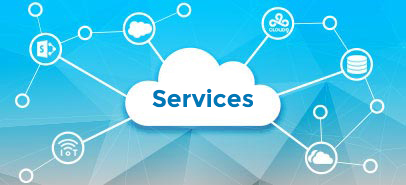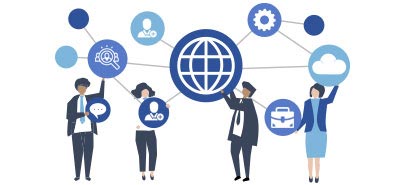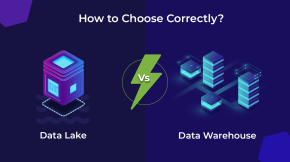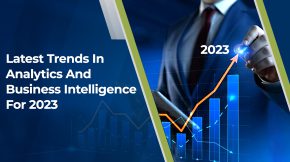The Anatomy of GenAI Agents: Architecting the Future with Large Language Models
The potential of AI agents is vast, from automating workflows to revolutionizing smart home management. With progress in natural language processing, deep learning, and robotics integration, they’ll reshape industries and enhance user experiences.
Future AI agents will offer advanced problem-solving, personalized learning, and empathetic interaction. While models like GPT-4 and Bard have made strides, unlocking multimodal capabilities will further enhance their utility.
In this ever-changing landscape, AI agents hold boundless possibilities. By embracing innovation, we’re on the brink of redefining human-technology interaction and creating a more connected future As providers of Artificial Intelligence development services, we harness Large Language Models (LLMs) capabilities and an extensive skills library to develop custom AI agents solutions tailored to specific business requirements. We utilize premier tools such as AutoGen Studio and Crew AI to ensure top-notch performance.
Our AI Developers or AI engineers excel in completing wide range of tasks like research, analysis, code generation, reviews, audits, online discovery, and segmentation. We empower businesses to streamline processes, enhance productivity, and achieve their goals more efficiently.
The Biological Inspiration for Artificial Intelligence
Within artificial intelligence (AI) development, businesses are increasingly turning to sophisticated AI agents to streamline operations and gain a competitive edge. With the advancements in machine learning models like GPT-4, Gemini, and Mistral, AI developers are leveraging these powerful tools to create intelligent systems capable of understanding and generating human language, revolutionizing how we interact with technology.
Leading Artificial Intelligence development companies offer a wide array of AI development services tailored to meet the diverse needs of businesses across various regions like the USA, UK, Australia, Canada, and beyond. These services encompass the development of AI agents ranging from simple reflex agents to complex hierarchical systems, each offering unique functionalities and applications.
For businesses seeking to integrate AI agents into their operations, consulting with experienced AI developers is paramount. These experts can provide invaluable insights into identifying the most suitable AI agents and crafting customized AI solutions tailored to specific business objectives.
Let’s delve into some of the key AI agent types and their applications:
Simple Reflex Agents: Operating on condition-action rules, these agents respond directly to immediate perceptions. While efficient for straightforward tasks, their effectiveness diminishes in complex environments.
Model-Based Reflex Agents: With an internal model of the world, these agents handle partially observable environments by inferring missing information, offering greater adaptability.
Goal-Based Agents: Considering future consequences, these agents make decisions based on achieving set goals, ideal for complex decision-making tasks.
Utility-Based Agents: Assessing desirability using a utility function, these agents strive to maximize performance based on preferences, beneficial in scenarios with multiple possible outcomes.
Learning Agents: Evolving over time based on experience, these agents adapt strategies in dynamic environments, optimizing performance continuously.
Multi-Agent Systems (MAS): Enabling interaction among multiple agents, MAS is vital for complex tasks requiring coordination, such as supplychain management.
Hierarchical Agents: Structured in a hierarchical manner, these agents manage tasks at different levels, ideal for large-scale systems requiring task delegation.
Each type of AI agent offers distinct advantages, from handling routine tasks to navigating complex, uncertain environments. By harnessing the expertise of AI development companies, businesses can unlock the full potential of AI technologies, driving innovation and growth in today’s marketplace.
GenAI: Intelligent Agents Powered by LLMs
While LLMs focus solely on language, GenAI agents utilize them for real-world goals:
- Understanding context and instructions
- Reasoning about plans and actions
- Taking decisive action through APIs and tools
With their innate language skills combined with goal-oriented design, GenAI agents can act as highly capable assistants.
Let’s look under the hood to see how they work…
The Brain: Language Model
Just like humans, GenAIagents need a brain. The LLM serves as the agent’s cognitive center, taking in instructions, reasoning about them, and determining appropriate responses. Popular choices for GenAI agents include GPT-4, Codex and Jurassic-1. Each has unique skills – Codex excels at coding whileGPT-4 offers general proficiency. The brain needs to fit the task. Choosing the right LLM is crucial for optimal performance.
The Eyes and Ears
Perceptual Modules perceive the world through senses like sight, hearing, and touch. For GenAI agents, perception comes from APIs, databases, and web scraping. These tools serve as the agent’s windows into the digital world, allowing it to gather intel and ground its decisions in real data. Perceptual modules equip GenAI agents to make practical, informed choices aligned with business objectives.
The Hands: Action Modules
Being perceptive isn’t enough- you need to act. The action module enables GenAI agents to influence the environment with decisive outcomes. This module integrates tools like RPA software, APIs, SDKs and more to carryout the agent’s chosen course of action. For a marketing GenAI agent, the action module could generate emails, launch campaigns, post on social media – the possibilities are endless.
The Memory: Knowledge Base
Humans accumulate memories to learn from the past. GenAI agents also require memory storage to harness experience. The knowledge base serves as the agent’s long-term memory. This stores domain-specific data so the agent can make connections and identify patterns to enhance decision-making. For a supply chain agent, the knowledge base may contain past sales data, inventory information, delivery timelines and more.
The Conductor: Orchestration Layer
On its own, an LLM lacks direction. The orchestration layer manages the flow of data between modules, coordinating agent behaviors towards defined goals. This conductor function allocates tasks, delegates requests between modules and interprets the LLM’s language outputs into executable actions. The orchestration layer is the central intelligence that brings cohesion and purpose to GenAI agents.
Architecting Genai Agents with AutoGen
Manually building GenAI agents from disparate parts is challenging. That’s where frameworks like AutoGen come in. AutoGen streamlines GenAI development with four key components:
Skills – Predefined actions and prompts that enhance language model capabilities Models – Optimized large language models for custom requirements
Agents – Bots embedded with skills and models to achieve goals
Workflows – Toolkits to coordinate cross-functional, collaborative GenAI teams
With AutoGen, anyone can architect GenAI solutions through simple drag-and-drop interaction – no coding needed.
The Framework for Building Genai Agents
When architecting GenAI agents, follow these steps:
- Define the goal and required capabilities
- Select the optimal large language model (LLM)
- Identify APIs, data sources and tools needed
- Design the orchestration layer to coordinate modules
- Develop specialized skills to enhance the LLM if needed
- Continuously retrain the agent with new data
By combining the strengths of LLMs with a modular, goal-driven design, AI agents can transform workflows and unlock new levels of automation.
The Future of Work Powered by AI Agents
We’re just beginning to grasp the possibilities of GenAI and large language models. As this technology improves, GenAI agents are set to revolutionize:
Highlight the diversity and impact of AI agents in revolutionizing industries, improving efficiency, and enabling innovative solutions across various domain
- Customer service – Seamless, empathetic conversational agents
- Finance & accounting – Automated processes like auditing and reporting
- Manufacturing – Predictive maintenance and supply chain optimization
- Marketing – AI-generated content and ad targeting
- Healthcare – Rapid medical diagnosis and healthcare administration
- E-commerce – Intelligent personalization and customer analytics
Almost any information work could be enhanced by GenAI agents. The future is a hybrid workforce of humans and AI collaborating seamlessly.
Integrating Cutting-Edge AI Agents with Beyond Key
Welcome to our forward-thinking AI project consultancy! We specialize in crafting tailored AI solutions to revolutionize your business. Our seasoned team assesses your current setup, pinpointing AI implementation opportunities. We guide you in selecting the optimal AI agent type, leveraging cutting-edge LLM technology.
With meticulous attention, we curate the ideal tech stack, considering seamless integration using premier tools like AutoGen Studio and Crew AI. Harnessing the prowess of LLMs and an extensive skills repository, we craft bespoke AI agents tailored precisely to your business imperatives.
Our AI agents excel in many tasks including research, analysis, code generation, reviews, audits, online discovery, and segmentation. Ready to empower your operations and gain a competitive edge? Reach out to our seasoned AI developers today. Let’s sculpt a custom solution to address your unique business challenges, ensuring you stay ahead in the dynamic market landscape. Choose our AI development services and embrace the future of business innovation!












